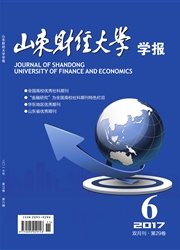

 中文摘要:
中文摘要:
改革开放以来中国迅速成为全球首要的反倾销目标国家,中国制定实施反倾销法具有遏制国外对华滥用反倾销措施的动机。文章利用负二项模型和泊松模型对1995—2008年20个国家(地区)对华反倾销调查数据进行计量分析,发现中国对进口产品实施反倾销以及主动利用WTO争端解决机制挑战他国对华反倾销行为并未对国外对华反倾销产生明显的遏制作用。要改变中国在全球反倾销博弈中的不利处境,一要积极推动WTO反倾销制度改革,防止进口国滥用反倾销措施;二要增强对外反倾销的针对性;三要提升主动利用WTO争端解决机制处理反倾销争议的能力。
 英文摘要:
英文摘要:
As China soon became the chief target of global antidumping actions after it started the reform and o peningup program, to dampen foreign antidumping against the country is among the motives behind China' s adop tion and application of its own antidumping regulations. In this paper, using negative binomial and Poisson models, the authors develop a quantitative analysis of the antidumping initiations of 20 countries or regions against China in the period of 19952008 and find that China' s antidumping actions against imports and it's endeavor to challenge foreign anti dumping by resorting to WTO dispute settlement meehanism have not dampened foreign antidumping a gainst China effectively. In order to improve China' s position in the global antidumping game, China should ( 1 ) support the reform of WTO antidumping rules to reduce importing countries' misuse of antidumping; (2) target anti dumping against heavy foreign users; and (3) improve the capacity to positively use WTO dispute settlement mecha nism to handle antidumping disputes
 同期刊论文项目
同期刊论文项目
 同项目期刊论文
同项目期刊论文
 期刊信息
期刊信息
